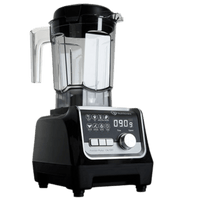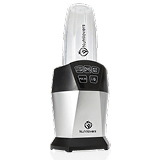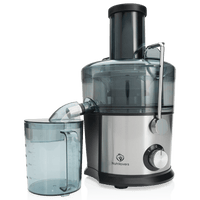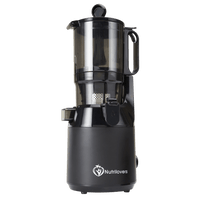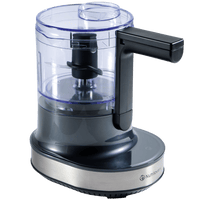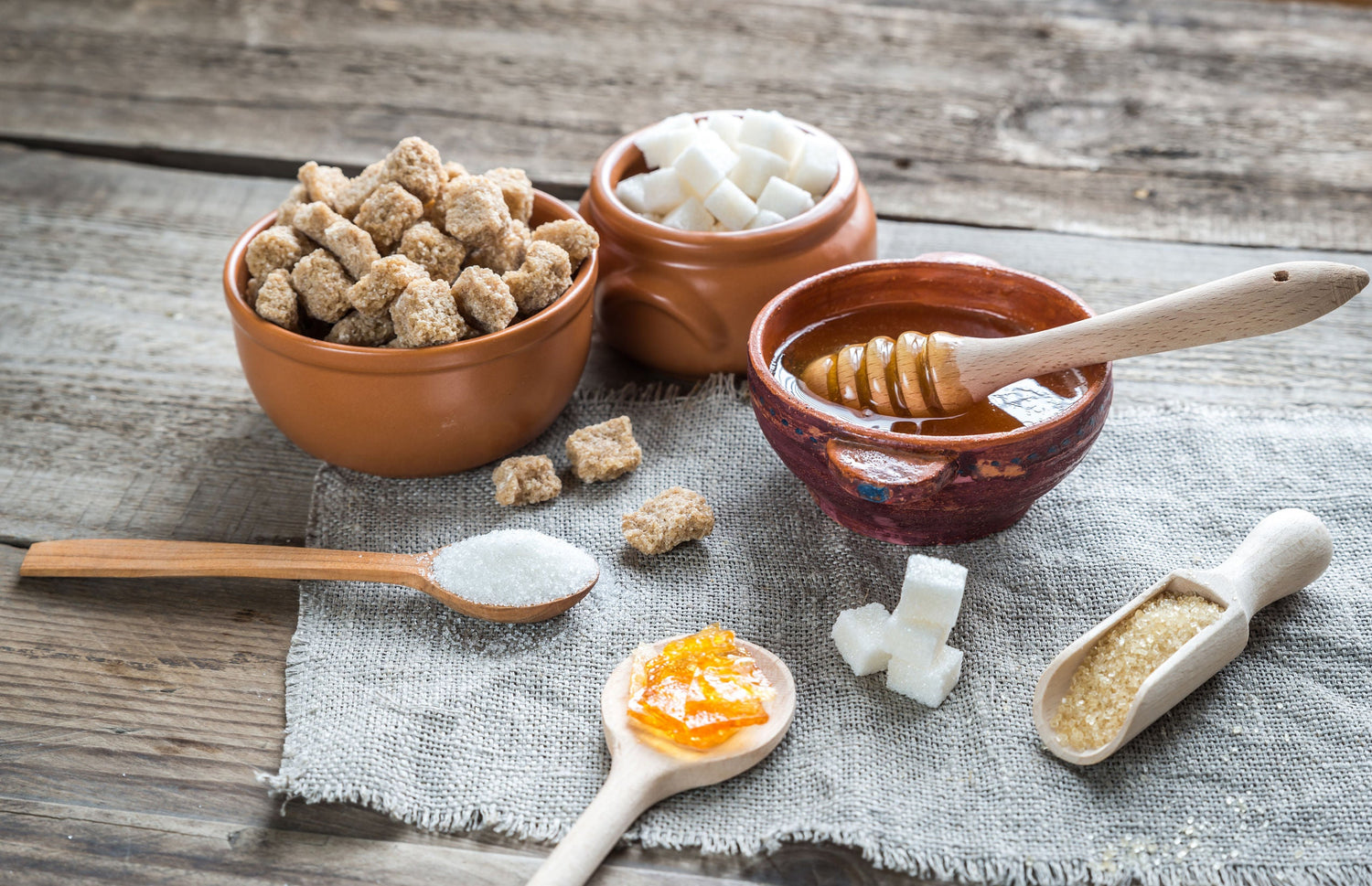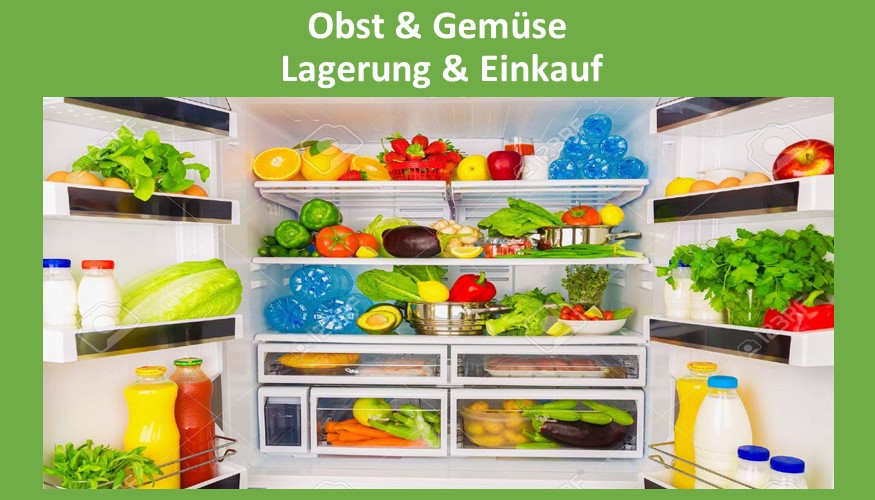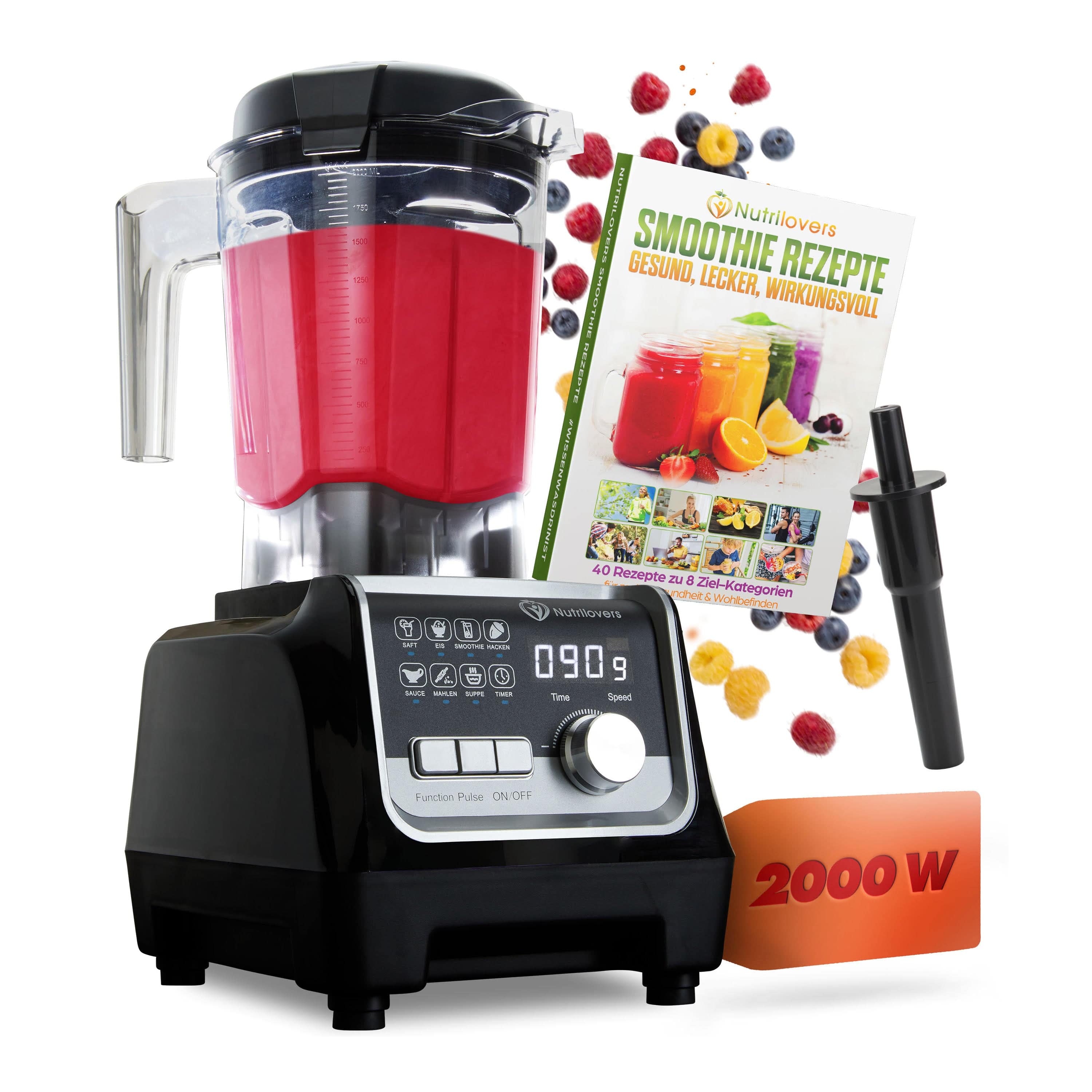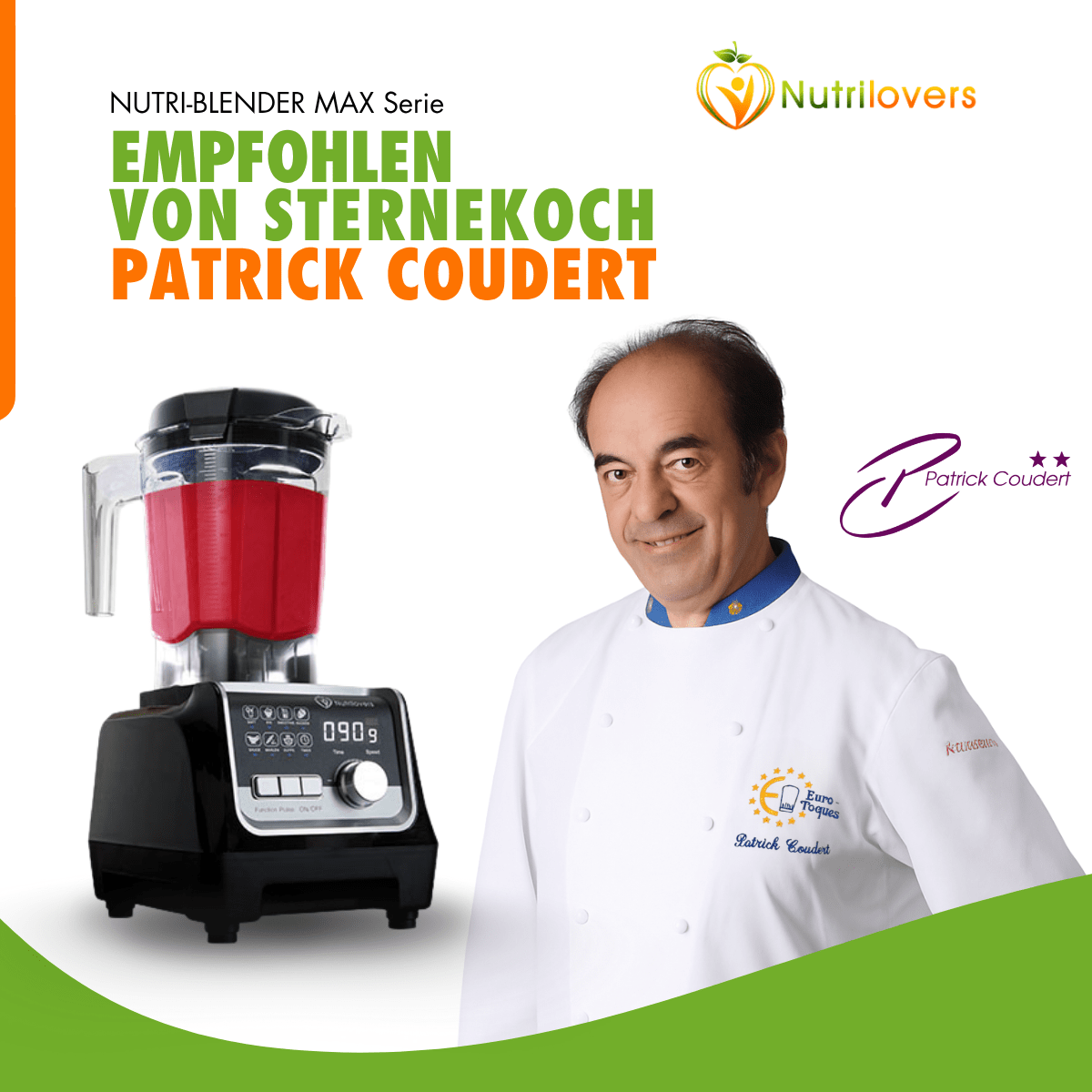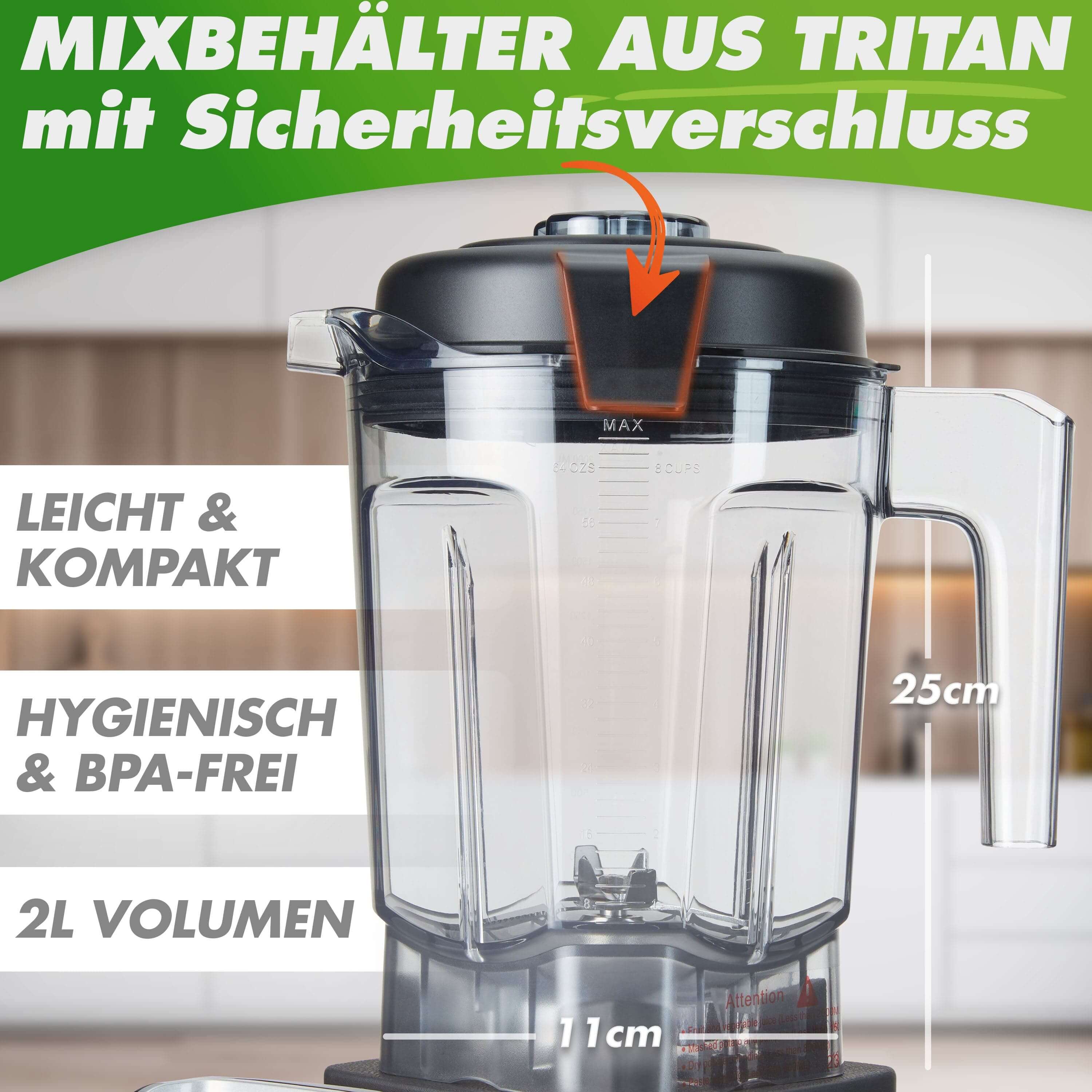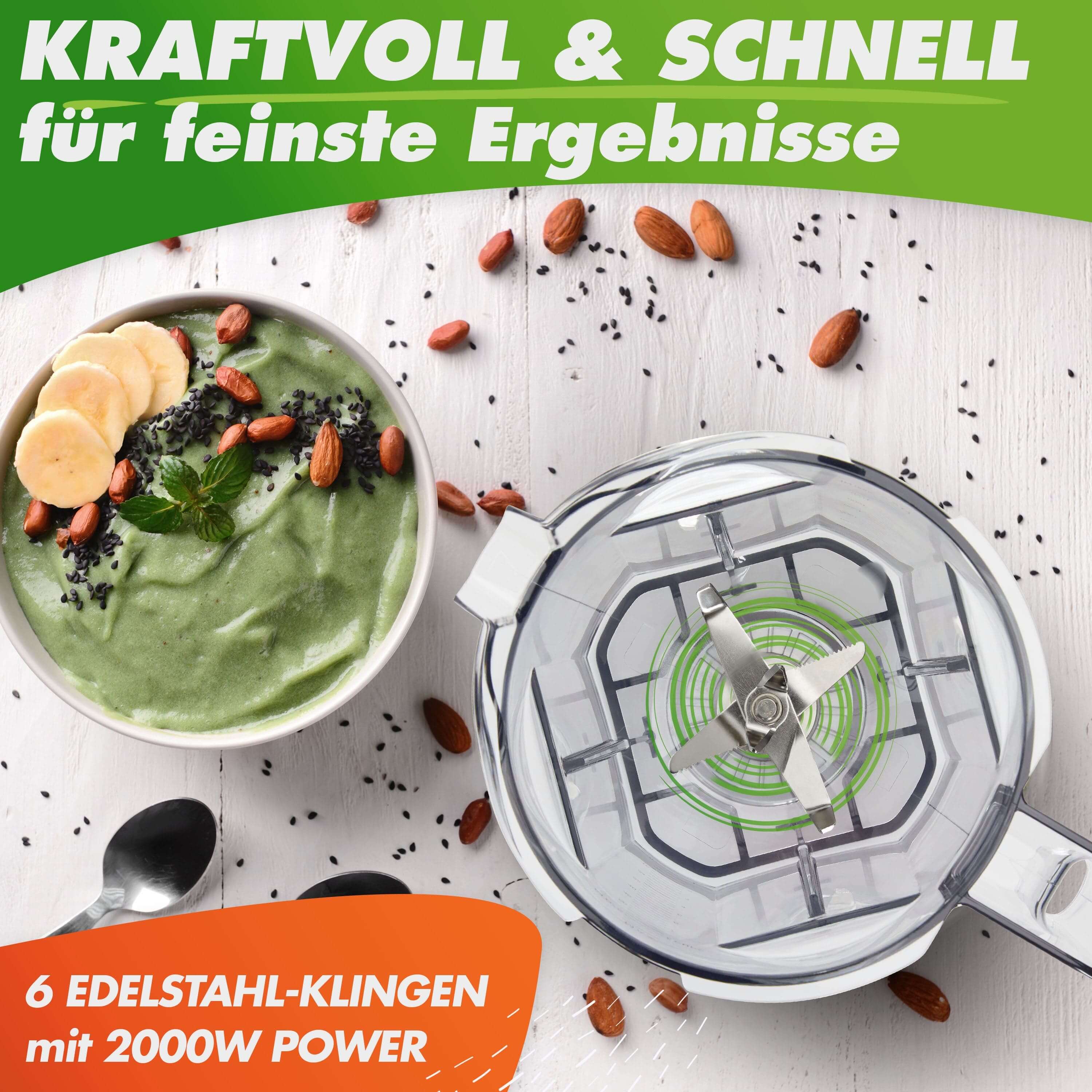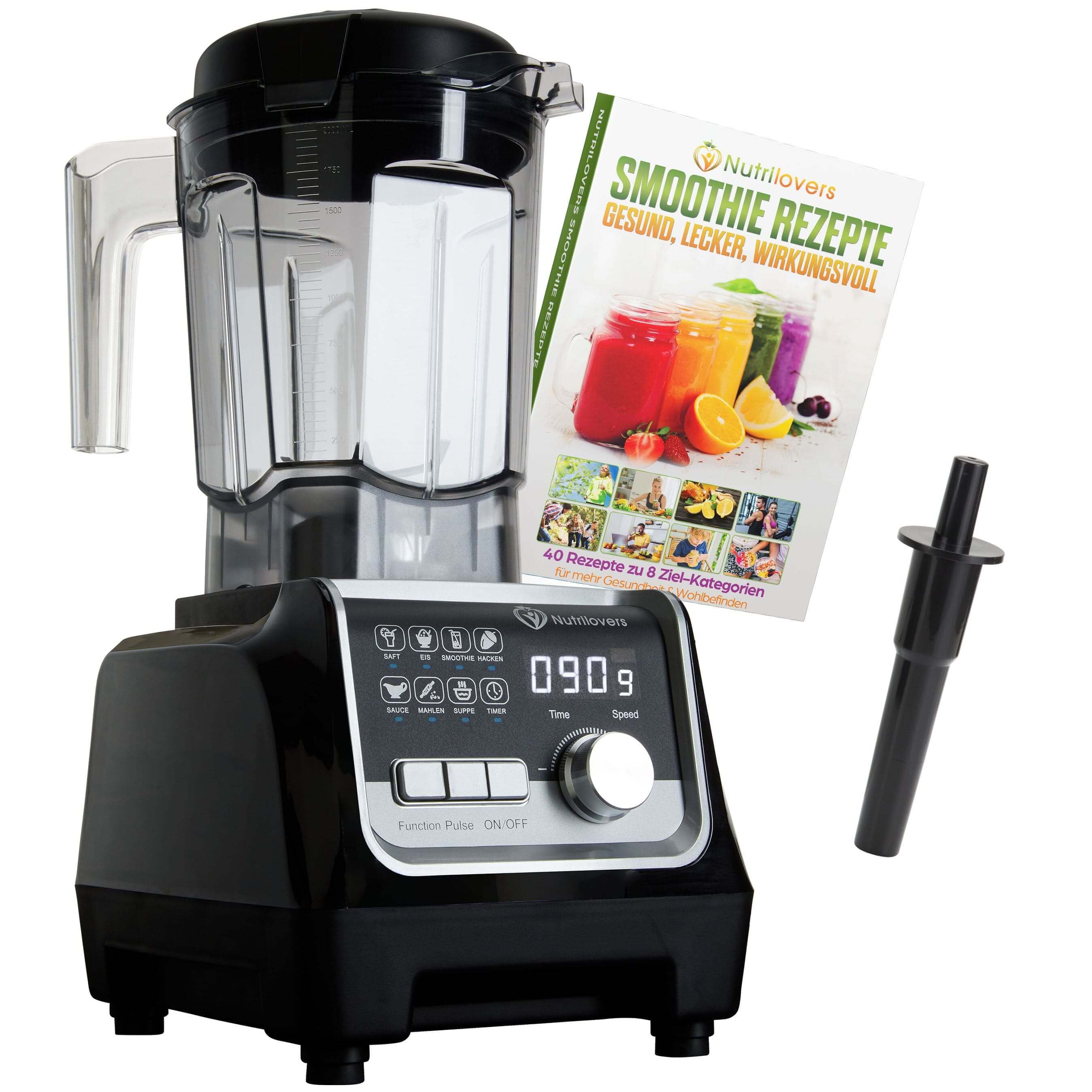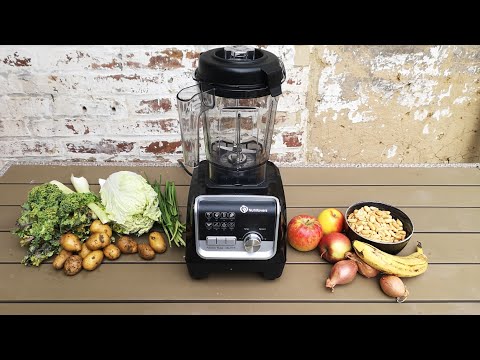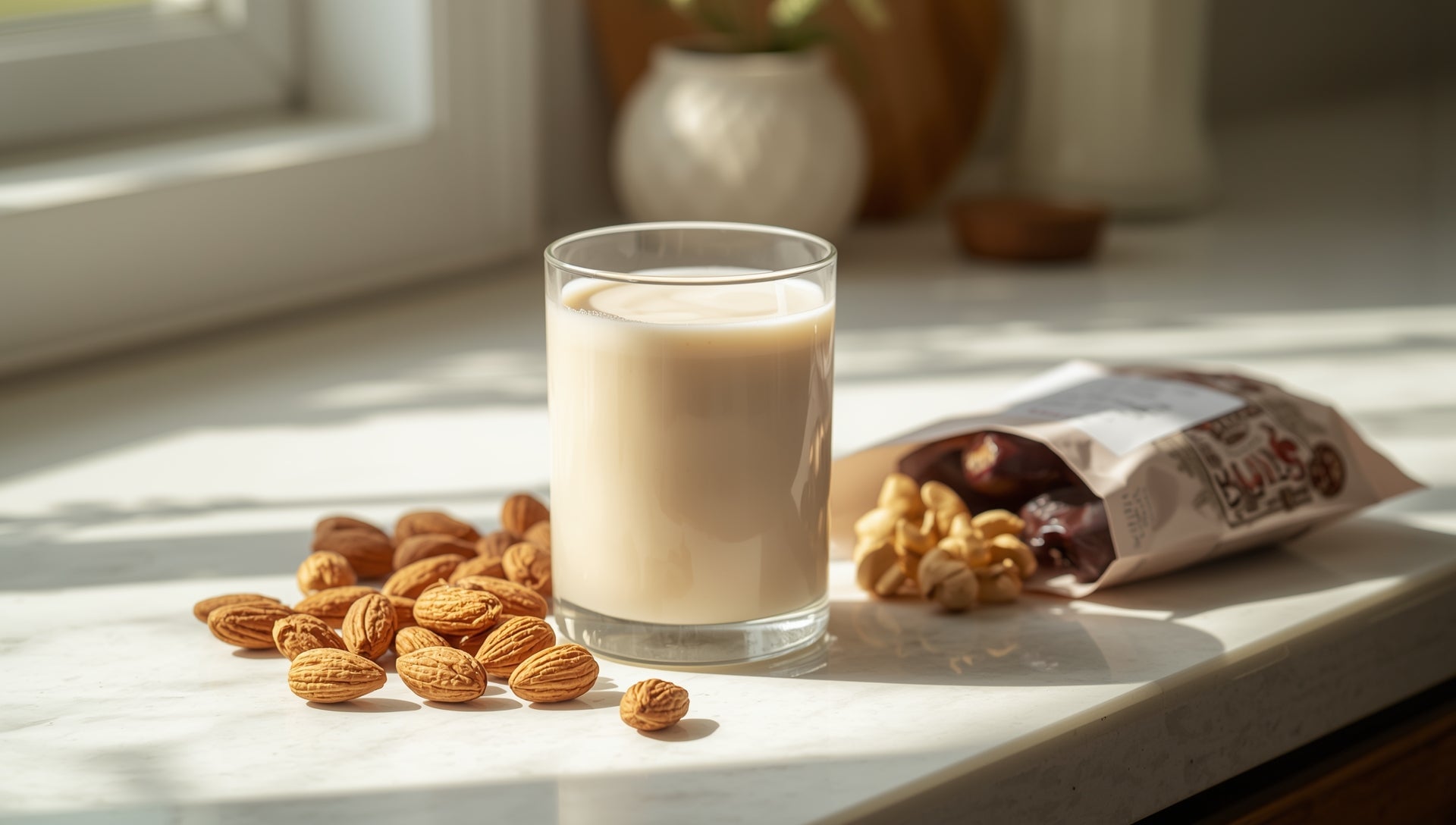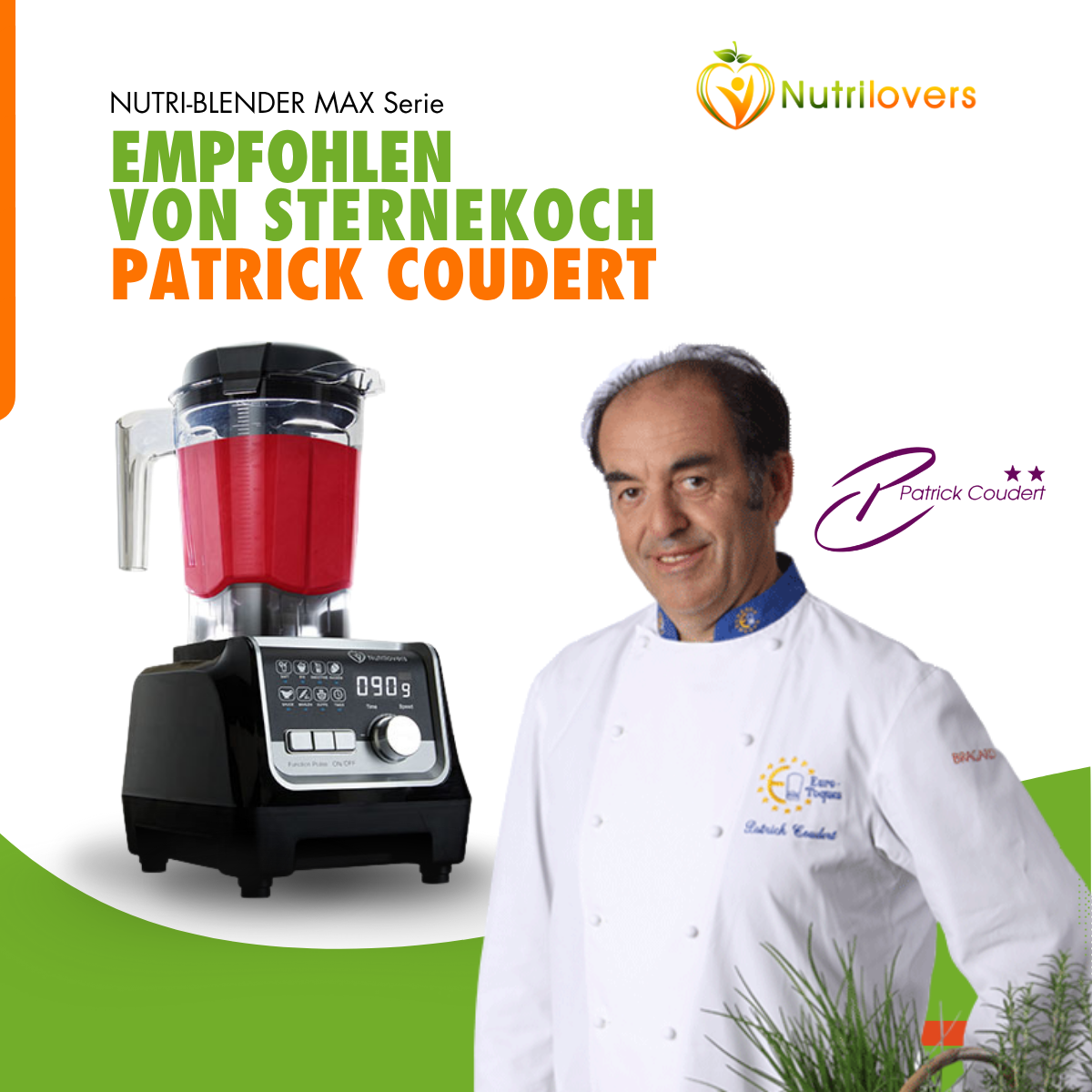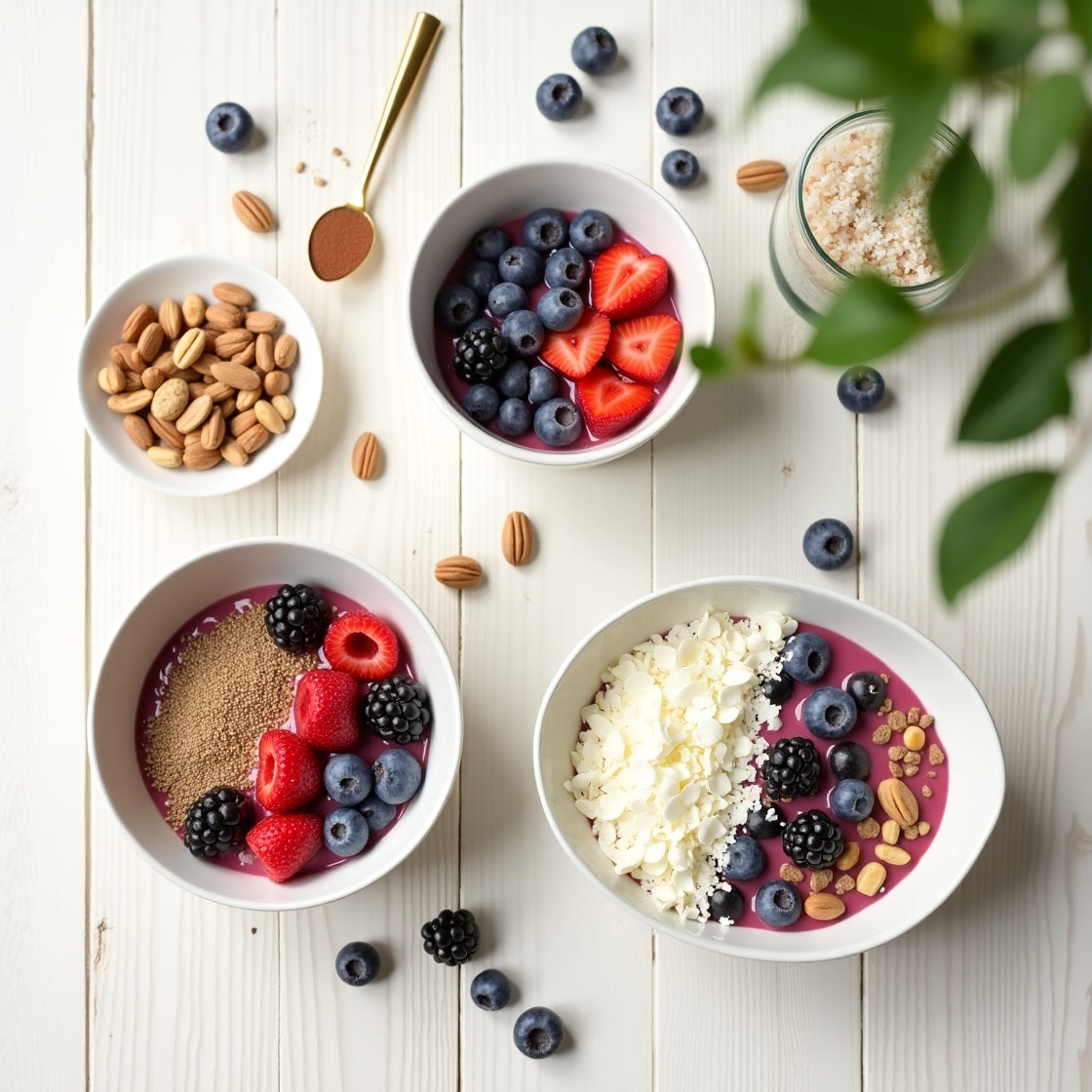Do you also love sweet things but want to avoid white sugar? Then we have the best sugar alternatives for you.
We present you seven healthy alternatives to white sugar. Healthy in the sense that they aren't completely calorie-free, but these are the so-called good calories. Our alternatives to white sugar are natural and not produced in a lab. You can use these alternatives, from stevia to honey and palm sugar to xylitol and yacon, to sweeten your muesli, bake your cakes, and, of course, add a sweeter flavor to your juices and smoothies. All without a guilty conscience. So before you reach for artificial sweeteners, you should try these healthy sugar alternatives. Just try them all and find out which one you like best.
Stevia

Sweeten with the power of the stevia plant
Stevia is extracted from the stevia plant. The botanical name of this plant is Stevia rebaudiana, but it is also known as honey or sweet herb. Stevia originates from South America and has also conquered our latitudes in recent years. Stevia has become particularly popular in low-carb cuisine, as this herb makes calorie-free sweetening possible.
Stevia is said to be about 300 times sweeter than regular white sugar and has virtually no calories. But stevia has even more benefits. One major advantage is that stevia is also good for your teeth. It doesn't cause cavities and is therefore found in many chewing gums and toothpastes.
Stevia powder or liquid stevia sweetener, however, are industrially processed. Even though they are a natural ingredient, commercially available sweeteners are highly processed. An alternative, however, would be to have your own stevia plant at home in your garden or on your windowsill. You can also use the leaves to sweeten things wonderfully. The plant's leaves are particularly suitable for smoothies and juices.
For a long time, it was always said that stevia wasn't necessarily healthy. However, studies have been conducted and, in normal amounts, it is completely safe.
However, you should be careful with your stevia dosage. Not because it's unhealthy, but because you could easily overdose. If you overdose on stevia, you'll notice an unpleasantly sweet, slightly bitter taste reminiscent of licorice. Therefore, you should work your way up to the stevia dosage slowly.
Xylitol

Sweeten with birch or corn sugar
Xylitol is also marketed under the names xylitol or birch sugar. True birch sugar is actually extracted from birch trees, but xylitol extracted from corn cobs is more commonly found. The result, however, is the same.
Xylitol is also good for your teeth. It doesn't cause cavities and is even used for dental care. Many mouthwashes, toothpastes, and even dental chewing gums contain xylitol.
This sugar substitute is incredibly sweet and contains significantly fewer calories than white table sugar. It's often said that xylitol, like other sweeteners, can have a laxative effect. It's possible that some people may be sensitive to xylitol, but this generally only occurs with large amounts.
However, it's important to know that xylitol can be extremely dangerous for dogs. If you have a dog at home and frequently bake and cook with xylitol, you need to be careful that your four-legged friend doesn't get any of it. Xylitol can quickly become life-threatening and even fatal for dogs. So, if your dog often snacks from the table, you should look for another sugar alternative. However, you can sweeten your juices and smoothies wonderfully with this sugar alternative.
maple syrup

More than just a topping for pancakes
The thickened sap of Canadian maple trees is perhaps the most popular sugar alternative for vegans who do not want to eat honey for ethical reasons but still want to avoid white table sugar.
To produce maple syrup, maple trees are tapped and the sap is boiled down to a syrup. Therefore, it is both a plant-based and natural sweetener. Nothing else is added to pure maple syrup. However, maple syrup is not always cheap. This is because one liter of maple syrup requires about 40 liters of maple sap.
If you buy cheap maple syrup, be sure to check the ingredients. In many cases, it's mixed with cheap sugar syrup. Therefore, it's best to opt for organic maple syrup that doesn't contain any other ingredients.
Maple syrup has anti-inflammatory and antibacterial properties. It is also recommended for many illnesses. One quality indicator of particularly healthy maple syrup is its color. The darker the color, the more antioxidants and polyphenols it contains.
Maple syrup is not only a natural and healthy sweetener, it also tastes wonderful. Maple syrup is excellent for cooking and baking, and you can also use it to enhance your juices and smoothies.
Yacon

Sugar alternative from South America
This healthy, plant-based sugar alternative is extracted from the yacon root. It's especially popular in Mexico, and even the Incas are said to have sweetened their dishes with yacon. This syrup is also said to have healing powers and can aid weight loss.
In terms of sweetness and consistency, yacon syrup is similar to our sugar beet syrup. Its flavor is more reminiscent of honey and has a very distinctive yet subtle note. Yacon syrup also contains nuances of caramel and prunes.
Yacon not only tastes delicious, it also has health-promoting properties. Best of all, it's completely low in calories. It's rich in antioxidants and minerals. Yacon provides amino acids, potassium, calcium, iron, and phosphorus, and has a low glycemic index. This means it doesn't put too much strain on your blood sugar. Even diabetics can use yacon as a sweetener.
It's important, however, that you don't overdo it when using yacon. Overconsumption can have a laxative effect or cause severe stomach pain and bloating. Just take it slow. However, one or two spoonfuls of yacon in your juices, smoothies, or muesli are absolutely safe, and you should tolerate it well.
Coconut blossom sugar

Exotic sugar alternative
Coconut blossom sugar is a specific variant of palm sugar. As the name suggests, it is obtained from the blossoms of the coconut palm. More precisely, the sap from the flower stem is used. Coconut blossom sugar is particularly popular in Asia, where many traditional sweets are traditionally made with coconut blossom sugar.
Coconut blossom sugar tastes like a caramel and malt. Its color resembles brown sugar. It's available in many consistencies. It's sold either in large blocks or as crystals. Sometimes you can also find it as a syrup. You can buy it inexpensively, especially in Asian stores. Many organic stores now also carry coconut blossom sugar.
Coconut blossom sugar is a great and healthy sugar alternative, not only because it tastes good, but also because it contains zinc, potassium, and iron. While this sugar alternative is very healthy and tasty, it has only slightly fewer calories than white sugar. So, if you're only concerned about reducing calories, you should use it sparingly. 100 grams of coconut blossom sugar has about 380 calories.
Palm sugar

Sugar alternative from palm trees
This sugar is also extracted from the flower stalks of certain palm species. It has been used in Indian and Ayurvedic cuisine for centuries. Palm sugar is very digestible and extremely tasty. It, too, is usually sold as a syrup or in large blocks. You can find it in Asian or organic stores.
Boiling down the liquid gives the palm sugar its light brownish-golden color. Like coconut blossom sugar, its flavor is reminiscent of caramel and malt. The aroma also has light vanilla notes, and it is very velvety and smooth. Palm sugar has a fructose content of 3.1 grams per 100 grams and a low glycemic index.
Although palm sugar has almost as many calories as white table sugar, it scores highly for its nutrients. Palm sugar provides many vitamins and minerals. Vitamin B, folic acid, riboflavin, and thiamine are particularly noteworthy. Therefore, it is definitely a healthy sugar alternative that can sweeten your cakes, muesli, juices, and smoothies.
Honey

Sweeteners with medicinal properties
Honey is extracted by bees from the nectar of flowers. Honey is familiar to everyone, and there are countless types of honey. Whether it's forest honey, acacia honey, blossom honey, or Manuka honey, you have a wide selection. When shopping, however, make sure it's organic and hasn't been diluted with sugar syrup. To ensure this, always read the ingredients list carefully.
Honey has been used for centuries as a medicine to treat a wide variety of ailments and to heal wounds. Honey owes its healing properties to its antibacterial, antifungal, and antioxidant properties. Honey also provides many important vitamins, potassium, calcium, magnesium, iron, and sodium.
Honey has slightly fewer calories than white sugar. Honey contains about 300 calories per 100 grams. This means that one tablespoon of honey has about 60 calories.
CONCLUSION
You've now become acquainted with a wide range of sugar alternatives. This shows that white sugar is absolutely unnecessary anymore. Depending on whether you want to save calories or simply want a healthy sweetener, you can choose one or the other.
If you still haven't found the right sugar alternative among these, you can also try dried fruit. These are particularly good for smoothies, but also for juices. At the top of the list is date sweetener. This is extracted from dates and offers a very neutral sweetness that doesn't overpower the natural flavor of the other ingredients.
For smoothies, you can also add dried raisins, mangoes, figs, or prunes to sweeten them and blend them in. To sweeten juices, you can puree the dried fruit with a little liquid and stir it into the juice. Always keep in mind that these fruits have their own flavor.
All healthy sugar alternatives are definitely better than white sugar and much healthier than artificial and industrially produced sweeteners. If you're not sure which alternative suits you best, just try it out. Switching from white sugar to alternatives will involve some adjustment, and your taste buds will need to get used to it. But give the alternatives a try; your body and your health will thank you.
READ MORE
Find out here how you can do something good for your health with cold-pressed slow juices:
▷ What is slow juicing? "Slow Juice" - The trend in detail
𝐧𝐮𝐭𝐫𝐢𝐥𝐨𝐯𝐞𝐫𝐬.𝐝𝐞 | #𝐖𝐢𝐬𝐬𝐞𝐧𝐖𝐚𝐬𝐃𝐫𝐢𝐧𝐈𝐬𝐭


